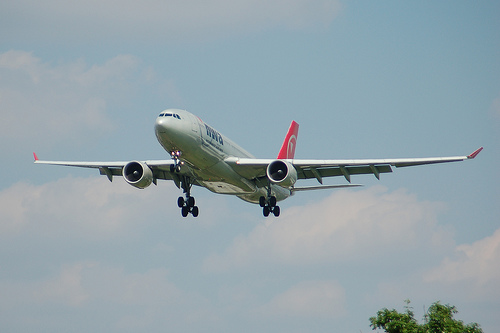9-11 Commission Co-Chairs: Mass of Data, Analysis Failures Main Culprits of Christmas Day Attack
01/20/2010 -The botched terrorist attack on Christmas Day was a failure of intelligence analysis and not information sharing, the two former chairs of the 9-11 Commission testified today.
"The greatest single challenge that arises from this incident in our view is theurgent need to strengthen the analytic process," former Rep. Lee Hamilton and former Gov. Tom Kean said in prepared testimony before the Senate Committee on Commerce, Science, and Transportation.
They were joined by Secretary of Homeland Security Janet Napolitano and Director of the National Counterterroism Center Michael E. Leiter, both of whom testifiedearlier this morning before the Senate Committee on Homeland Security and Government Reform with Dennis C. Blair, the director of national intelligence.
Members of both committees focused on how to correct the intelligence and security failures that allowed Umar Farouk Abdulmutallab, a 23-year-old Nigerian, to board a flight from Amsterdam with high explosives sewn into his underwear, despite numerous indicators that should have landed him on the country's No-Fly List.
"The President has asserted—and I agree—that there was ample, credible intelligence on Abdulmutallab to warrant his inclusion on the 'No Fly' list," Sen. Susan Collins (R-ME), the homeland security committee's ranking member,noted in her opening statement. "Yet that did not occur, even though his father warned U.S. officials about his ties to Islamist extremists."
Al Qaeda in the Arabian Peninsula, an al Qaeda franchise operating in Yemen, took credit for Abdulmutallab's botched attack, verifying his father's fears.
Although Abdulmutallab's name was entered into the Terrorist Identities Datamart Environment (TIDE), the government's biggest terrorist database, it was not placed in the smaller Terrorist Screening Database (TSDB). This database includes the two still smaller Selectee and No-Fly lists. Persons on the Selectee list are subject to secondary screening after airport check-in, while those on the No Fly list are barred from boarding flights to, from, over, and within the United States.
In testimony before the Senate homeland security committee, Blair explained that Abdulmutallab's name was not placed in the TSDB or the more restrictive lists because the intelligence community did not connect discrete pieces of intelligence that would have led to the suspect's inclusion. "The derogatory information associated with him did not meet the existing policy standards...for him to be "watchlisted," let alone placed on the No Fly List or Selectee lists," he explained.
Leiter later told the Senate Commerce committee that "We know that we should have done better."
Kean and Hamilton, currently co-chairs of the Bipartisan Policy Center's National Security Preparedness Group, noted the intelligence failures that allowed Abdulmutallab to board Northwest Flight 253 were not like those that led to 9-11.
"Rather than a failure to share information, the intelligence community is awash with data," the pair's testimony said. "In an age when we are collecting more information than ever before, the real challenge is how do you understand, manage, and integrate vast amount of information."
Napolitano listed DHS's plansto prevent terrorists from attacking the civilian aviation sector. The department, she said, would work with its federal partners to improve watchlist prescreening as well as with the Department of Energy's national laboratories to develop cutting-edge technologies to detect and disrupt terrorist threats.
In the short term, Napolitano said DHS would deploy 450 additional whole body scanners and add increased bomb-sniffing dogs, explosives detection devices, and security specialists like behavioral detection officers at U.S. airports this year. The department would also add more federal air marshals to U.S. airlines' international flights and work to strengthen security at foreign airports, she said.
Looking forward, according to CQ.com (subscription required), Napolitano asked for Congress' support when it comes to the "budget implications" of these security upgrades.
